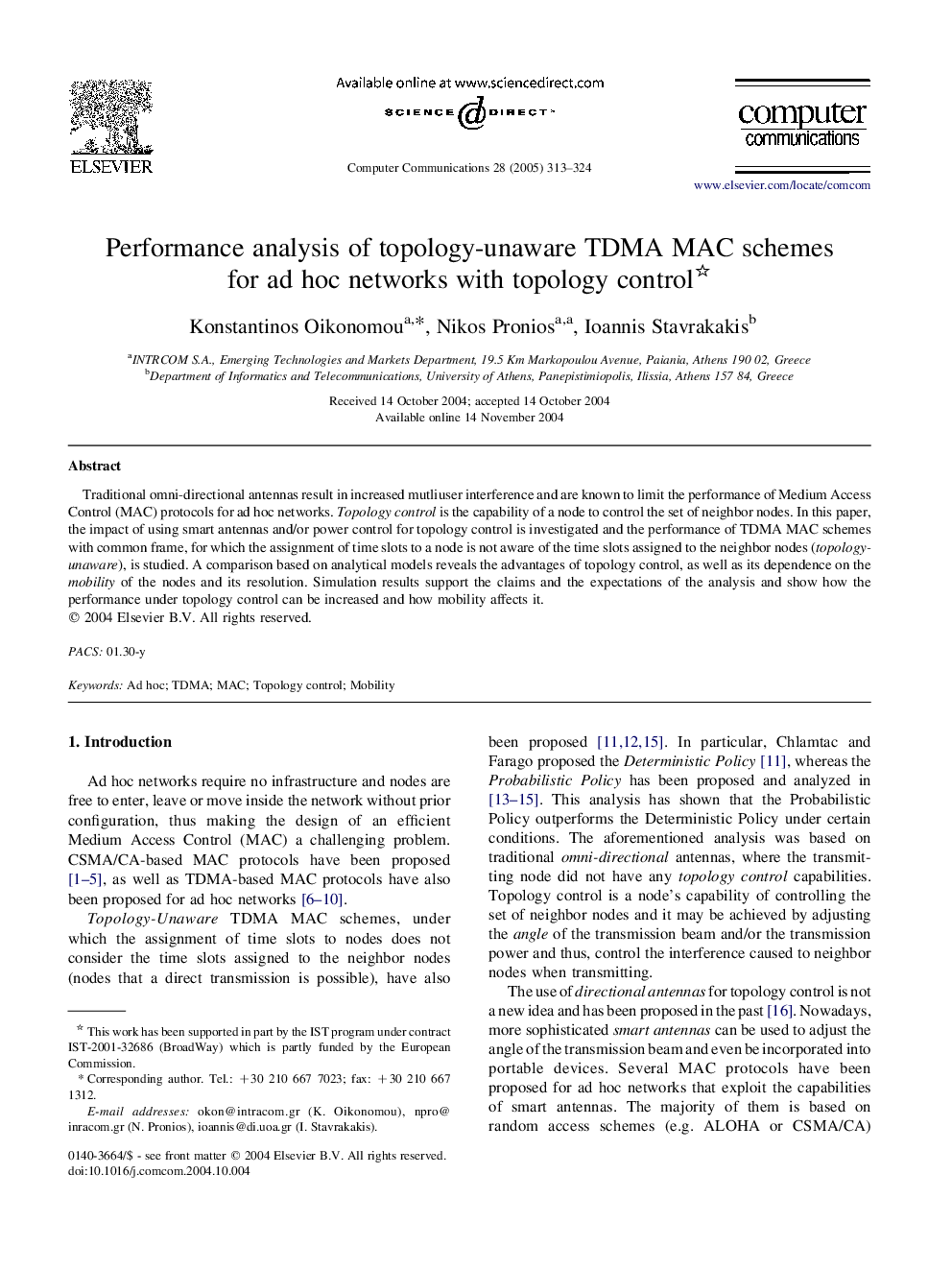| Article ID | Journal | Published Year | Pages | File Type |
|---|---|---|---|---|
| 10338574 | Computer Communications | 2005 | 12 Pages |
Abstract
Traditional omni-directional antennas result in increased mutliuser interference and are known to limit the performance of Medium Access Control (MAC) protocols for ad hoc networks. Topology control is the capability of a node to control the set of neighbor nodes. In this paper, the impact of using smart antennas and/or power control for topology control is investigated and the performance of TDMA MAC schemes with common frame, for which the assignment of time slots to a node is not aware of the time slots assigned to the neighbor nodes (topology-unaware), is studied. A comparison based on analytical models reveals the advantages of topology control, as well as its dependence on the mobility of the nodes and its resolution. Simulation results support the claims and the expectations of the analysis and show how the performance under topology control can be increased and how mobility affects it.
Related Topics
Physical Sciences and Engineering
Computer Science
Computer Networks and Communications
Authors
Konstantinos Oikonomou, Nikos Pronios, Ioannis Stavrakakis,
